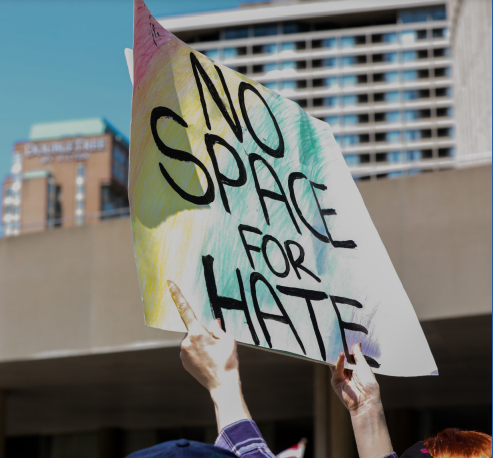Crises are testing grounds for societies and for their democratic institutions. They can either threaten or reinforce societal cohesion; weaken or consolidate the capacity of governments and elected bodies to respond to voters’ concerns; and suppress or stimulate the reaction of civil society organisations towards new needs and forms of marginalisation. Regarding discrimination, crises can intensify hatred and hate speech targeting specific individuals or groups deemed responsible for the crisis situation, but they can also be aggravated by hate speech when a certain group has been singled out as a threat or an enemy. Hate speech in times of crisis may build on existing discriminatory or hate narratives, but also trigger, and evolve from, new narratives disseminated to respond to such crises.
The recommendations to enhance the fight against hate speech in times of crisis include assessing and amending legal frameworks, as well as reinforcing law enforcement measures. Collaboration among stakeholders needs to be strengthened, including with a focus on the role and competences of specific actors such as media, national human rights institutions and equality bodies. Making public awareness and information campaigns a priority and providing support to those targeted by hate speech also appear as crucial measures to prevent and combat hate speech in times of crisis. Importantly, it should be recognised that it can be difficult to amend legal frameworks or make substantial policy or practical changes quickly in times of crisis. Therefore, it is essential to take steps to prepare good conditions of social cohesion in ordinary times to ensure a greater level of resilience to discriminatory and hateful speech in times of crisis. In this respect, it is suggested that member states and stakeholders closely follow the recommendations presented in the Recommendation CM/Rec(2022)16 of the Committee of Ministers to member States on combating hate speech.
